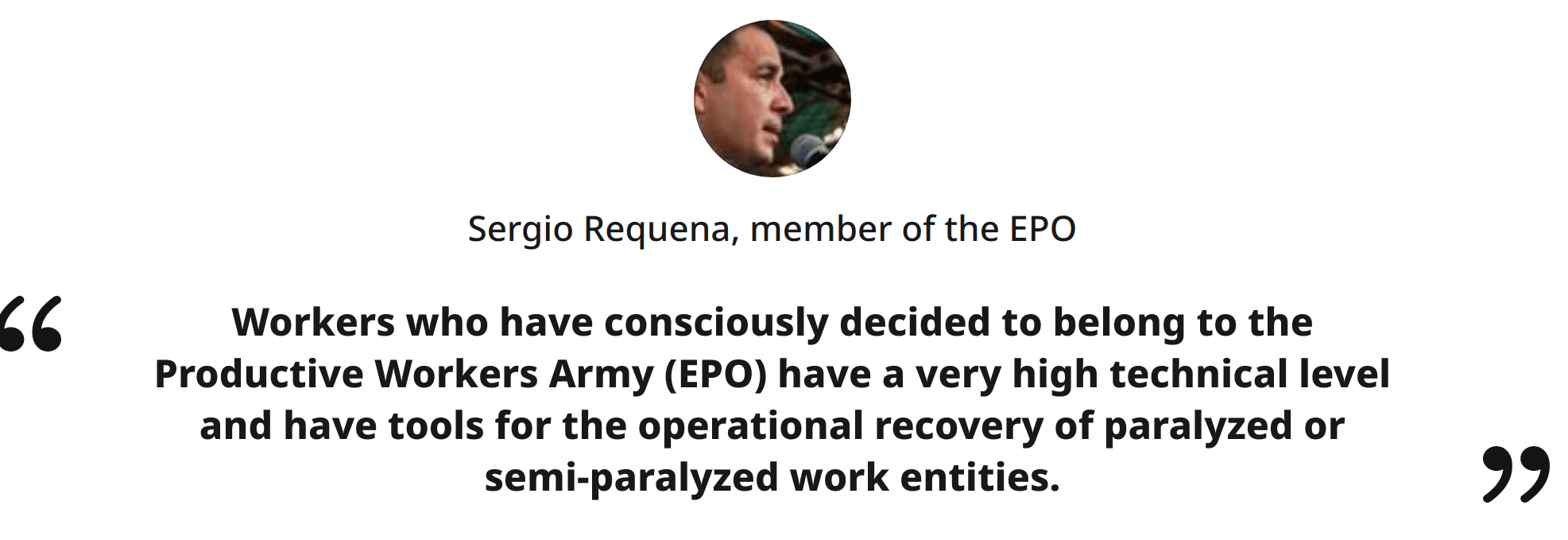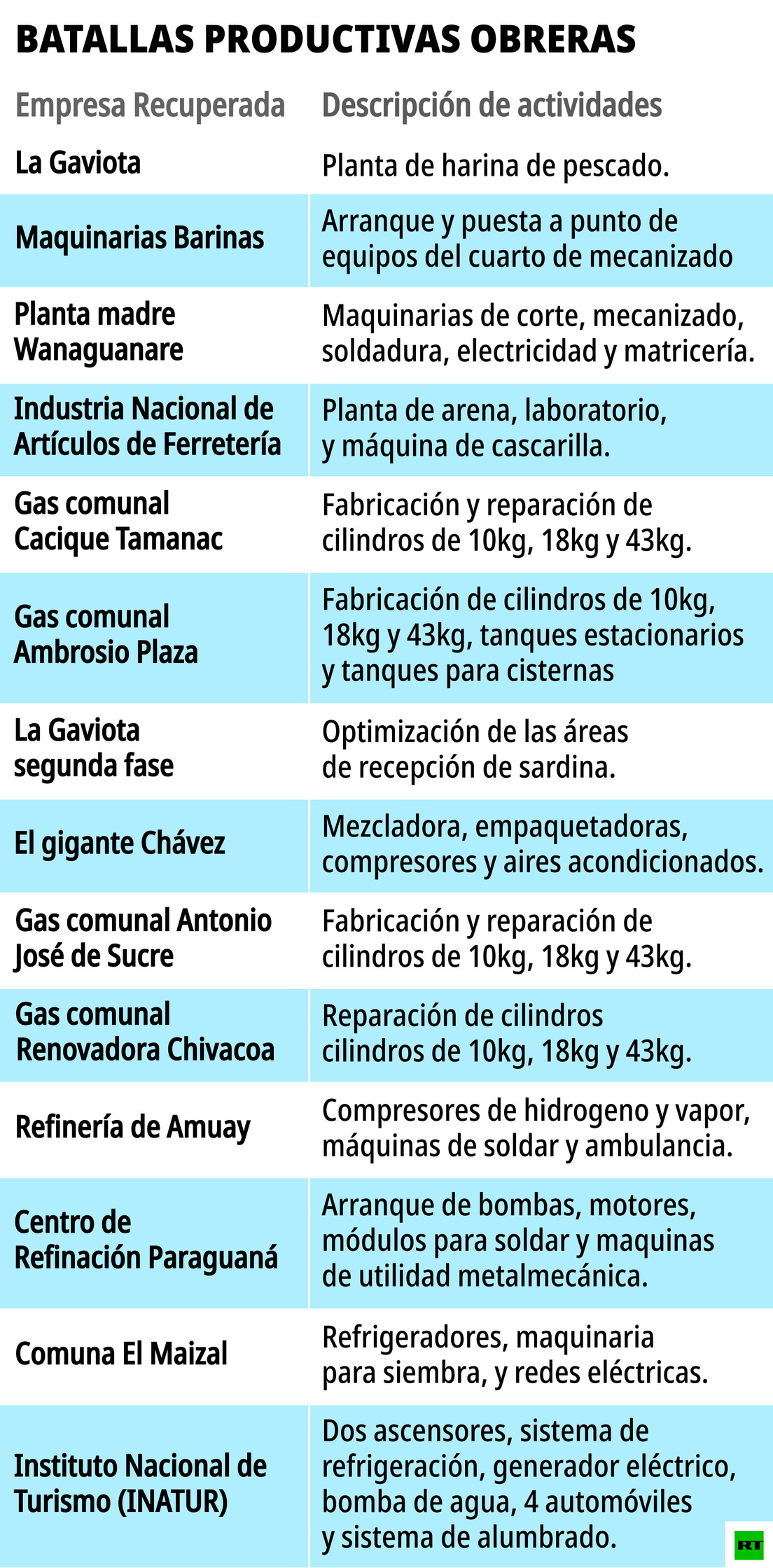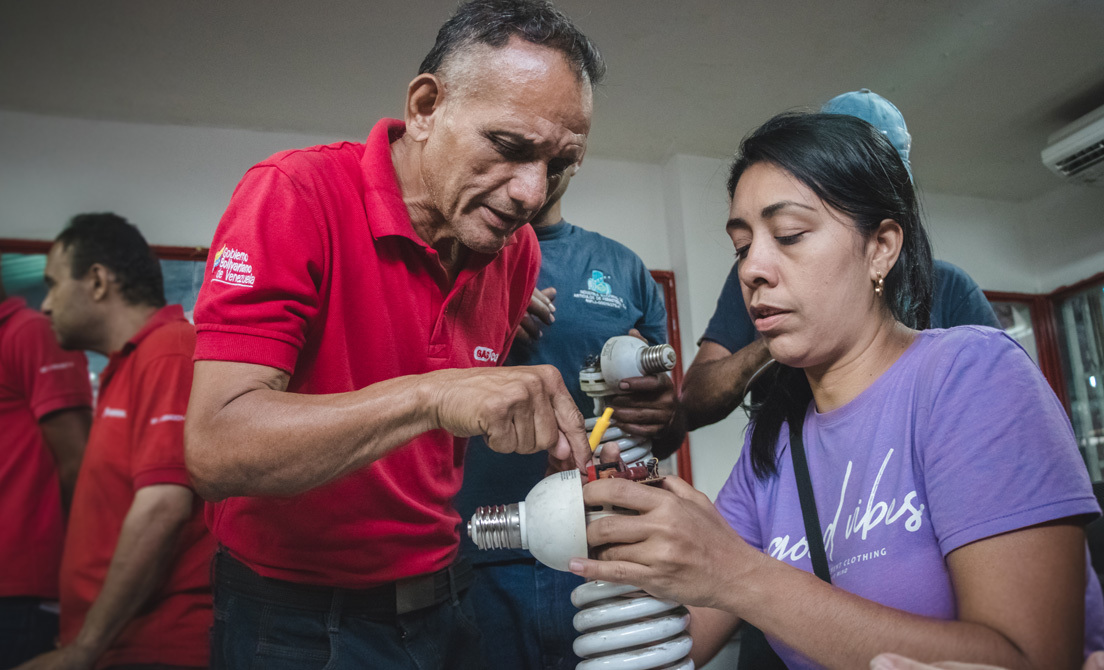An “Army” of Workers Recovers Paralyzed Companies in Venezuela with Voluntary Workers


Orinoco Tribune – News and opinion pieces about Venezuela and beyond
From Venezuela and made by Venezuelan Chavistas

It is a movement with 2,270 members nationwide, which has already reactivated fourteen large companies.
Jessica Dos Santos – Jun 22, 2020
The Productive Workers Army (EPO) is a social movement made up of Venezuelan workers, who decided to come together from 2014 to recover, through voluntary work, various paralyzed companies, as a consequence of the economic situation that the country is going through, the scarcity of spare parts and supplies as a result of the US blockade, and the different processes of political destabilization.
The group, with 2,270 members in all states of Venezuela, defines itself as “an unconventional army to win an unconventional war.” After the workers of the companies in trouble communicate with the EPO, the most suitable members of this group (depending on the area to be treated and the geographical location), move to the entity to “carry out a survey of critical problems.”
A report is made through interviews with both managers and the working class, “along with the army’s own diagnosis,” says Sergio Requena, a member of the movement.

After having a clear picture and reaching an agreement between the parties, the EPO experts get down to work to start the so-called “Workers’ Productive Battles,” which last from five to seven days, although everything depends on the production process and the labor entity.
So far, through this mechanism, 14 large companies have been reactivated, including flour plants, packaging companies, and gas companies. One of the most epic battles was at the Amuay Refining Complex, in Paraguaná (Falcón state).
RELATED CONTENT: UN Commission Reaches the Border Between Brazil and Venezuela

According to Requena, if a budget is required to reactivate the companies, “that investment must come from the entity in trouble.” However, on many occasions the solution comes when the complementarity between companies from the same State is achieved, “because what is lacking in one, in another might be a surplus.”
“In Venezuela we have a non-integrated system of state work entities, which makes each person make their purchases separately, and in the long run this has led to paralyzing companies due to a lack of communication,” Requena says.
In this situation, what they do is invite workers from companies close to the one in trouble, “to try to break the isolation and obtain exchanges that bring mutual benefits and development for all.”
Requena also recognizes that, in many cases, companies are not producing due to the lack of will of many managers, who “seek individual solutions and only through the request for extraordinary resources,” which has generated a forest of paralyzed machinery, “due to bureaucracy or small things like a blown fuse.”
Requena considers that many of these delays hide the existence of economic interests, with “commissions” (corruption) at stake that hinder the activation process.
However, Julia Puello, another member of the movement, says that the initiative of the EPO demonstrates that the working class can modify the structure of the State, including this type of irregularities. “Workers can articulate ourselves to generate real changes,” she says with resolve.
Puello recalls that at the beginning of their work at EPO, many workers in paralyzed companies were suspicious of the intervention of the workers army. “They thought we were going to take away their positions, their spaces,” he says. But having overcome the initial resentment, they decided to unite in favor of the rescue of the companies.
“Later, we also worked together on intellectual training as a transversal axis,” he says.
At the moment, the army is developing contacts with different organizations, companies, communes, to prepare the next “battles”. “Where there are reserves of morale, capacity for indignation and the will to do, the EPO will be there making the operational recovery of those work entities so that they can meet the needs of the Venezuelan people,” Requena added.

For this reason, the movement proposed the creation of a Great Mission to the national executive, under the name of “Sovereign Maintenance”, promoted by workers from popular organizations, Missions, Communal Councils, Communes and other types of popular power structures.
However, this approach has not yet received an official response. “We made the proposal in June 2019, we raised it publicly and sent it to several members of the high government, but so far we have had no response regarding that. But, yes. We want this project to be expanded and we will continue to fight,” Requena explains.
According to its members, the EPO opposes any economic policy that seeks a preponderant role for the private or foreign sector, since they trust that the working class “has the ability to rescue production to sustain the socialist horizon in Venezuela.”
“If we all feel part of this, if we assume that we are working class or whatever name they want to use, but members of a group, we can contribute a lot in the oil, food, health, tourism industry,” considers Julia, who regrets that very few know the feat of an Army that, instead of weapons, wields wills.
Featured image: Members of the Productive Workers Army (EPO) in the middle of a recovery day. EPO
OT/JRE/EF
You must be logged in to post a comment.